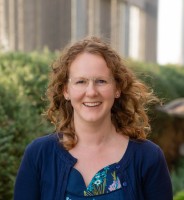Sustainable Living & City
Climate Change
Climate Adaptation & Resilience
Urban Planning
Resilient Infrastructure & Safety
Environmental Justice
Post-Doctoral Fellowships
Australia
2023.06.20
Indicators for Climate Resilient City Planning
This research project is one of the 8 projects selected following the call for proposals on Health Impact of Climate Change.
Cities contribute enormously to global greenhouse emissions and are key drivers of climate change. By the same token, people living in urban areas (over half the world’s population) are more exposed to climate change risks, such as flooding, excessive heat, air pollution, and food shortages. Cities therefore need to adopt climate-resilient urban policies to protect both planetary and human health.
Dr Melanie Lowe, AXA Fellow at RMIT University, will work to identify indicators of city resilience to support efforts to create healthy, climate-resilient cities. Dr Lowe’s innovative research project will assist global initiatives to reduce climate change risks to urban infrastructure, industry, and human health, and help to meet the UN Sustainable Development Goals.
Many existing indicator frameworks concentrate on city resilience outcomes, rather than on the policies that determine them. As a result, there is insufficient evidence on whether cities have the policy frameworks to support climate resilience. Dr Lowe will therefore create a set of policy indicators, in collaboration with city health and resilience researchers and policy makers, that will measure the presence and quality of urban policies for dealing with climate change. These indicators will cover a range of policy areas, including disaster risk management, urban greening, urban biodiversity and air quality, and will reveal the extent to which a city’s transport, housing, and urban design policies are prepared, integrated, and inclusive.
Within cities, there are often quite stark inequities in risk exposure. Disadvantaged urban communities can have less access to resilient infrastructure and services, rendering them more vulnerable to climate change. Dr Lowe will uncover spatial inequities by enabling between- and within-city comparisons of built environment features, such as sustainable transport, urban greening, land use diversity and flood risk. Identifying inequities at the city and neighborhood scales will support policy and practice innovations to minimize the health impacts of climate change.
Dr Lowe will also test the international application of her policy and spatial indicators for four cities chosen for their diverse population sizes, geographical locations, and country income classifications: Melbourne, Australia; Odense, Denmark; Mexico City, Mexico; and Chennai, India. The findings will be used to develop resilience recommendations tailored to the unique needs and challenges of each city.
Additionally, the project’s findings will enrich the Global Observatory of Healthy and Sustainable Cities (GOHSC) created in 2022 to inform city planning, by supplementing it with indicators of climate resilient cities. The GOHSC currently hosts indicators for 25 cities across 19 countries taken from the Lancet Global Health Series, which Dr Lowe herself co-led, and will make the project’s findings publicly available. This means that many more cities internationally will be able to calculate their indicators as part of the GOHSC’s.
April 2023

Melanie
LOWE
Institution
RMIT University
Country
Australia
Nationality
Australian
Related articles
Climate Change
Finance, Investment & Risk Management
Societal Challenges
Climate Adaptation & Resilience
Insurance & Risk Management
Environmental Justice
Civil Society & Governance
AXA Project
Italy
AXA Research Lab on Climate Change, Risk and Justice
In response to three research questions: How can the private and financial sectors contribute to a just transition to a... Read more

Gianfranco
PELLEGRINO


